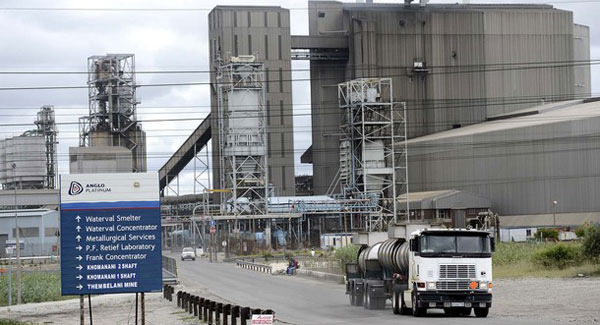Pretoria – Government, trade unions, business and civic leaders need to take bold steps to resolve unrest in the mining sector to reduce the impact on the economy.
Opening a debate on the National Treasury budget vote in Parliament on Tuesday, Finance Minister Pravin Gordhan warned that unless a way is found to restore calm and confidence in the mining sector, this was a threat to investment and jobs.
“The present uncertainty in the labour relations environment in mining and other sectors requires concerted action by organised labour, business, civic leaders and government.
“There is no room for complacency here: we are all in this together. If we do not resolve our labour relations challenges, we will all be losers. We will see deteriorating confidence, job losses and business failures.
“But if we find balanced, fair and socially responsible solutions, we all stand to gain: we will see higher investment, higher employment and improvements in living conditions,” he said.
Gordhan’s statement comes as the Commission for Conciliation Mediation and Arbitration (CCMA) is set to facilitate talks between government, unions and Anglo American Platinum in a bid to mitigate the mining company’s planned restructuring.
He said the labour unrest and the stoppages in production in the mining sector were also not ideal.
But despite this and other challenges that posed a threat to the economy, Gordhan said South Africans should, however, focus on telling a positive story instead of dwelling on the negatives despite international slow growth.
“But it is time to construct a positive narrative, and to work together to implement it. There are many countries that have greater instability, but their economic narrative is extremely positive. South Africans want to focus only on the negative and yet what is needed urgently is to focus on the positive.”
Infrastructure development to turn things around
Gordhan said to turn around the country’s fortunes, government needed to focus on investing in the infrastructure.
He said this was how South Africa weathered the storm during the 2008-9 recession, where Treasury managed to retain healthy public and a comparable low level of debt.
“Spending growth reinforced the social security net during a period of declining employment, and provided an economic stimulus through rising allocations towards infrastructure, and programmes aimed at business support and increasing employment.
“Going forward, the deficit level will moderate through a combination of revenue growth in line with the economic recovery, and disciplined real growth in spending.”
He said there was a need to enhance the economy’s capacity to finance long-term infrastructure investments and municipal capacity.
“I am pleased to report that the Corporate Plan of the Development Bank of Southern Africa (DBSA) outlines a concerted effort to support basic and economic infrastructure development in South Africa and the region.
“Government will, over the next three years, invest R827 billion in the building of new and the upgrading of existing infrastructure.
“These investments will improve access by South Africans to healthcare facilities, schools, water, sanitation, housing and electrification.” – SAnews.gov.za













Unfortunately for the Minister, the bulk of government actions are negative and most of the time these negativity overwhelms any positivity, Guptagate, Textbook saga, etc. I don’t think there will ever be a solution as long as the governing party is in alliance with communist and trade unionist. It depends in such an alliance to gain votes and keep it’s governance intact. Honestly, the objectives of the parties to the alliance differ widely, unionist are charged with the mandate of fighting for workers’ rights which often counteracts with the mandate of the governing party to run the country as an efficient economical machine. As for the communist, I don’t want to start. Unfortunately, in these case the Minister is fight a battle with both hands tied behind the back.